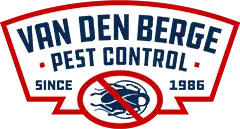
Contents
Imagine stepping into your cozy home after a long day, only to be greeted by the unsettling scurrying of tiny feet across your kitchen floor. The thought of a potential pest infestation can send shivers down your spine.
But fear not, for there is a way to ensure that unwelcome critters never make themselves at home in your sanctuary. By conducting regular preventative home inspections, you can catch any signs of pest infestations early on and take the necessary steps to eradicate them.
From identifying common indicators to focusing on key areas, this discussion will equip you with the knowledge and tools to protect your home from pests.
So, let’s dive in and uncover the secrets to a pest-free haven.
Key Takeaways
- Regular home inspections are important for maintaining the integrity and safety of the living space.
- Early detection of pest infestations allows for prompt action to seal off entry points.
- Signs of potential pest infestations include droppings, chew marks, foul odors, nests, and strange sounds.
- DIY prevention tips for homeowners include sealing common entry points, keeping the home clean, using natural remedies, and decluttering the space.
Importance of Regular Home Inspections
Regular home inspections are essential for maintaining the integrity and safety of your living space. By conducting regular inspections, you can prevent potential pest infestations and ensure a healthy living environment for you and your loved ones.
One of the key benefits of early detection is the ability to address pest issues before they become major problems. By identifying pest entry points early on, you can take prompt action to seal off these areas and prevent pests from entering your home. Common pest entry points include gaps and cracks in the foundation, doors, and windows. Pests like ants, spiders, and rodents can easily find their way into your home through these openings.
Regular inspections will help you identify these entry points and take the necessary steps to seal them off. By doing so, you can significantly reduce the risk of pest infestations and the potential damage they can cause.
Early detection of pest infestations is crucial because it allows you to mitigate the problem before it escalates. When left unchecked, pests can multiply rapidly and cause extensive damage to your property. They can contaminate your food, damage your belongings, and even pose health risks to you and your family.
Signs of Potential Pest Infestations
When it comes to protecting your home from pest infestations, early detection is key.
There are several warning signs that can indicate a potential pest problem, such as droppings, chewed wires, or strange odors.
Warning Signs
To identify potential pest infestations in your home, be on the lookout for certain warning signs. These signs can help you take early action and prevent a full-blown infestation. Here are some common warning signs to watch out for:
| Warning Sign | Description | Possible Pest |
|---|---|---|
| Droppings | Small, dark pellets or droppings found in cupboards, drawers, or near food sources | Rodents |
| Chew marks | Gnawed furniture, wires, or walls | Rodents |
| Foul odor | Strong, unpleasant smell in specific areas of your home | Ants |
| Visible nests | Nests made of twigs, leaves, or other materials found in corners or hidden areas | Wasps |
| Strange sounds | Scratching, scurrying, or squeaking noises heard at night | Mice |
Early Detection
If you’ve noticed any of the warning signs mentioned earlier, it’s important to be proactive in early detection of potential pest infestations in your home. Early detection is key to preventing a full-blown infestation. There are several prevention methods and pest control strategies you can implement to identify and address pest issues before they become a major problem.
Regularly inspect your home, paying close attention to areas where pests are likely to hide or enter, such as cracks, crevices, and openings. Look out for signs of pest activity, such as droppings, gnaw marks, and nests. Additionally, keep an eye out for any unusual odors or sounds coming from hidden spaces.
Consider setting up traps or bait stations in strategic locations to monitor and catch pests. These can help you identify the type of pest and the severity of the infestation.
Areas to Focus on During Inspections
During inspections, pay close attention to specific areas in order to effectively identify and address any potential pest infestations in the home. By focusing on these key areas, you can take preventative measures to protect your home and ensure a pest-free environment for you and your family.
Here are three areas to focus on during inspections:
- Common hiding spots: Pests are masters of hiding, and they can find refuge in various areas of your home. Inspect dark and cluttered areas such as basements, attics, and crawl spaces. Check behind appliances, furniture, and inside cabinets. Look for cracks and crevices in walls and floors, as pests can easily squeeze through these tiny openings. Remember to inspect your garage and outdoor areas as well, as pests can enter through these points of entry.
- Moisture-prone areas: Moisture attracts pests, so it’s important to pay attention to areas with excess moisture. Inspect your bathrooms, kitchen, and laundry room for any leaks, standing water, or dampness. Check under sinks, around pipes, and near windows and doors for signs of water damage. Repair any leaks and ensure proper ventilation in these areas to prevent pests from being attracted to the moisture.
- Food storage and waste disposal: Pests are always on the lookout for food sources, so inspect your pantry, cabinets, and countertops for any signs of infestation. Look for droppings, chewed packaging, or any holes in food containers. Make sure your food is stored in airtight containers to keep pests out. Additionally, pay attention to your waste disposal areas, such as trash cans, compost bins, and recycling bins. Properly seal these containers and dispose of waste regularly to eliminate potential food sources for pests.
DIY Prevention Tips for Homeowners
Now, let’s explore some practical tips that you, as a homeowner, can implement yourself to prevent pest infestations in your home. By taking proactive measures and using natural remedies, you can create a pest-free environment where you and your family can feel safe and at home.
One of the first things you can do is to identify and seal off common entry points for pests. Inspect your home for any cracks or gaps in the walls, windows, doors, and foundation. Seal them with caulk or weatherstripping to prevent pests from entering. Pay special attention to areas where pipes and utility lines enter your home, as these are often overlooked entry points.
Another effective DIY prevention tip is to keep your home clean and tidy. Pests are attracted to food and clutter, so make sure to store food in airtight containers and clean up spills immediately. Regularly empty your trash cans and vacuum or sweep your floors to remove any food debris. Additionally, declutter your home and remove any unnecessary items, as they can provide hiding places for pests.
Using natural remedies can also help deter pests. For example, placing bay leaves, peppermint oil, or vinegar in areas where pests are commonly found can repel them. You can also create a mixture of water and dish soap to spray on plants and surfaces to prevent pests from infesting them.
Hiring Professional Pest Control Services
When it comes to dealing with pest infestations, hiring professional pest control services can offer several benefits.
Professionals have the knowledge and expertise to effectively identify and eliminate pests from your home.
They also have access to advanced pest control techniques and tools that are more effective than DIY methods.
Benefits of Professionals
Hiring professional pest control services offers numerous benefits for homeowners dealing with pest infestations. Here are three reasons why you should consider hiring professionals to tackle your pest problems:
- Expertise and Knowledge: Pest control professionals have extensive training and experience in dealing with various types of pests. They possess the necessary expertise to identify the source of the infestation, understand the behavior of pests, and implement effective solutions.
- Cost-Effective Solutions: While some homeowners may attempt DIY pest control, it can often be ineffective and costly in the long run. Professionals not only have access to specialized tools and equipment but also use targeted treatments that provide long-term solutions. Addressing the root cause of the infestation helps prevent future outbreaks, saving you money in the long term.
- Peace of Mind: Dealing with pest infestations can be stressful and overwhelming. Hiring professionals allows you to delegate the task to experts who’ll handle it efficiently and effectively. This gives you peace of mind, knowing that your home is in capable hands.
Effective Pest Control Techniques
Consider the expertise and resources of professional pest control services to effectively address and eliminate pest infestations in your home.
When it comes to pest control methods, hiring professionals can save you time and effort and provide you with peace of mind.
These experts have the knowledge and experience to identify the type of pests infesting your home and the most effective techniques to eradicate them.
They also have access to specialized tools and products that may not be readily available to homeowners.
Additionally, professional pest control services can offer natural pest control solutions, using environmentally friendly methods to minimize the use of harmful chemicals.
Frequency and Timing of Inspections
Regular home inspections are essential to identify and address any potential pest infestations. By conducting inspections at the right frequency and timing, you can prevent pests from causing significant damage to your home and ensure a safe and comfortable living environment for you and your family.
Here are three important considerations to keep in mind when it comes to the frequency and timing of inspections:
- Frequency: It’s recommended to have your home inspected for pests at least once a year. However, depending on your location, climate, and the type of pests common in your area, you may need more frequent inspections. For example, if you live in a region with a high population of termites or rodents, it may be necessary to have inspections every six months to catch any signs of infestation early on.
- Seasonal inspections: Certain pests are more active during specific seasons. For instance, ants and mosquitoes tend to be more prevalent in the warmer months, while rodents may seek shelter indoors during the winter. By scheduling inspections accordingly, you can target potential pest problems before they become major issues.
- Cost considerations: While regular inspections are important for pest prevention, we understand that cost is a concern for many homeowners. Thankfully, the cost of inspections can vary depending on the size of your home, the complexity of the inspection, and the presence of any previous infestations. It’s worth noting that the cost of inspections is minimal compared to the potential expenses associated with extensive pest damage. Investing in preventative inspections can save you money in the long run.
Wrap-Up
Regular home inspections for pest infestations are like putting on sunscreen before going to the beach. Just as sunscreen protects your skin from harmful UV rays, inspections protect your home from pesky pests.
By being proactive and keeping an eye out for signs of infestations, you can prevent these unwanted visitors from taking over your home. Remember, a little prevention goes a long way in keeping your home pest-free.
Recent Posts
Eco-Friendly Termite Treatment Options for Homes
Did you know that traditional termite treatments can harm the environment just as much as
Top Eco-Friendly Mosquito Control Services Nearby
If you’re tired of battling mosquitoes but want to keep your outdoor space safe and
Find Local Eco-Friendly Mosquito Control Solutions
Imagine a world where your backyard isn’t a battleground against pesky mosquitoes. Finding local eco-friendly
